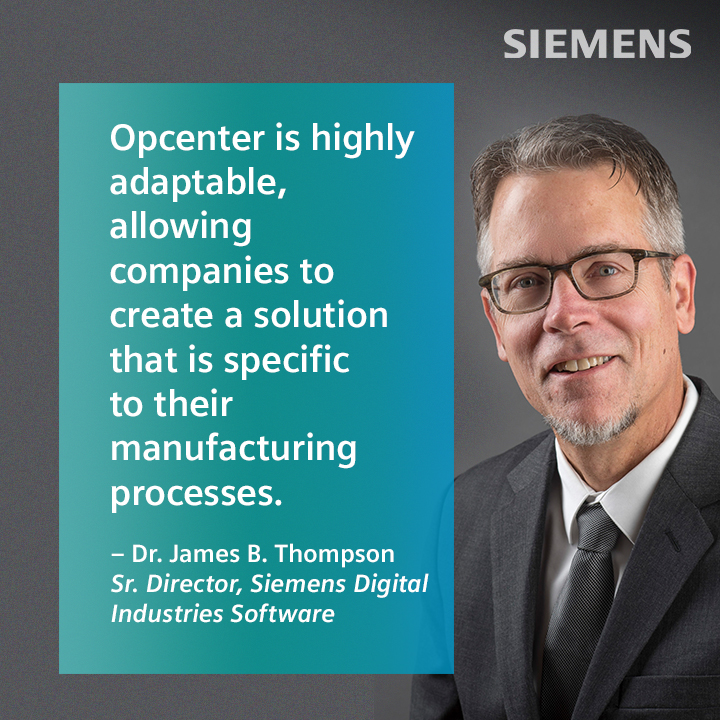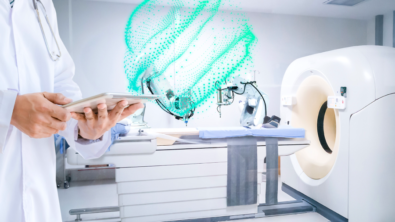Leveraging digital infrastructure is the key to medical device innovation

Siemens Digital Industry Software launched “The Voice of Smart Digital Manufacturing”, a 10-part podcast series dedicated to the industry of tomorrow and the impact that smart digital manufacturing is having and what to expect from it in the future. We interviewed experts from different industries – from Medical and Industrial Machinery to Electronics – to share their experiences with digitalization and how it helped overcome their challenges. This series will shine a light on the road ahead for industries that are willing to embrace change brought on by digital transformation.
In the first episode of the podcast series, we talked with Dr. Raffaello Lepratti about smart digital manufacturing and how Siemens enables industry manufacturers to become leaders. If you missed the episode, check it out here.
Now, in our second episode, we are shifting focus to talk about leveraging digital infrastructure to accelerate growth in the medical device and diagnostic industry. Let’s discuss how digitalization is the key to unleashing advancements and innovation.
Meet the expert
First, let’s meet our industry expert for this episode – Dr. James B. Thompson.
Dr. Thompson is the Senior Director for Industry Strategy for Medical Device and Pharmaceuticals at Siemens Digital Industries Software. He is responsible for charting the future direction of Siemens’ products and technologies for the medical device industry within Siemens. Dr. Thompson has been working in this role for over 23 years. He has experience in the engineering software business for over 30 years. Prior to working at Siemens, he worked for IBM and GE as a mechanical engineer.
Dr. Thompson received a doctorate, a master’s degree and a bachelor’s degree in mechanical engineering from the University of Illinois Urbana-Champaign.
Connect with Dr. James B. Thompson on LinkedIn.
COVID-19’s impact on the medical device industry
When the pandemic hit, everything changed. From wearing masks to social distancing to a toilet paper shortage, people’s personal lives were heavily affected. However, so were companies and market scenarios. The medical device and diagnostic (MD&D) industry was no exception.
Overall, COVID-19 had a big impact in two different ways. Firstly, one impact was simply dealing with the new social distancing requirements. Medical device manufacturers, along with the rest of the world, had to figure out how to operate in a safe way to minimize the possibility of transmission. In doing so, the medical device industry realized that it needed to be more agile and flexible to make immediate changes. To make these quick adaptations, they need better digital infrastructure. COVID-19 accelerated the understanding of the power of digitalization as a tool to help companies with planning and executing manufacturing operations on the shop floor.
Secondly, there was a huge disruption in supply chain and how manufacturers were able to deliver products to healthcare providers when the pandemic hit. Certain regions and countries are starting to change the way they expect a product to be made. For example, China created the China 2025 program to onshore and require more domestic production of their medical products. In the future, the industry should expect to see more directives to create more resilient supply chains and more local manufacturing so that future disruptions will have less of an impact.
Why Opcenter is the leading manufacturing execution software in MD&D
Opcenter Manufacturing Execution software (MES) is the leading manufacturing execution software system for the medical device industry. It’s a highly adaptable solution that allows companies to create a solution that is specific to their manufacturing processes. Siemens has a rapid application development technology that makes Opcenter Manufacturing Execution adaptable to every individual manufacturing process.

Ultimately, our Opcenter MES solution provides guardrails for the execution of the manufacturing process so companies can define upfront what it means to produce a high-quality, properly manufactured process. The tool also keeps track of manufacturing records to produce a device history record. With Opcenter MES, Medical device companies can meet their regulatory requirements with cost reduction and increased time to market.
Listen to the podcast today
Learn how digitalization is impacting the medical device industry. Listen to the latest episode of “The Voice of Smart Digital Manufacturing” podcast here.
Interested in more blogs about the podcast? Read more here.


